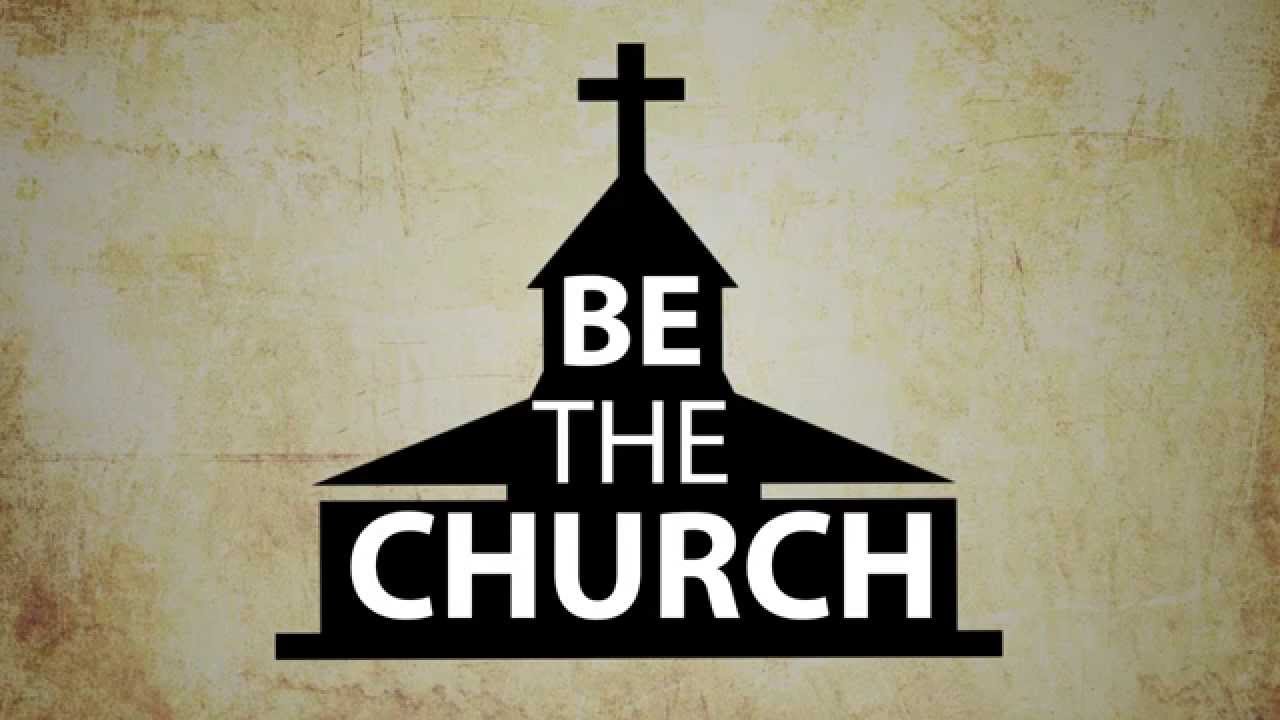WHAT IS THE MISSION OF THE CHURCH?
We believe our mission is to live out the Great Commandment as we fulfill the Great Commission. The gospel forms us into a family of families and sends us on mission into the world. Specifically, we believe we are called to make disciples and plant churches. This commitment requires a conviction that the Great Commission can be accomplished and will be completed. Furthermore, it requires that pastors and churches view themselves not as the end of the mission, but as a means to mobilize and equip people for mission through the local church.
As God saves us by the power of the gospel, believers are gathered into a FAMILY where we grow in the gospel together—taking it deeper into our own hearts as we share it in one another’s lives. But our family is not only a collection of maturing brothers and sisters who love one another; we are a team of ambassadors who are SENT on mission into the world. Genuine faithfulness requires that we both gather and scatter.
WHAT DOES IT MEAN TO BE A ‘SENT’ CHURCH? (the call)
A church that lives out its “sent-ness” is a church that understands the Great Commission to be a call to make disciples AND plant new churches. In other words, Damascus Road Church is a church committed to reproduction. It is our hope that disciples are making new disciples, groups are making new groups, and churches are making new churches.
As the Spirit leads, it is our intention to go, preach, gather, and establish both churches and campuses. When we planted our first church plant in Mt. Vernon, we dialogued at length about what kind of church to plant—a campus church or an autonomous church. There were pros and cons on each side. In the end, though there were many tangible advantages to launching a northern campus, the elders felt Mt. Vernon was too north. Ultimately, the proximity and the unique culture of Skagit Valley demanded we plant a separate church.
Every situation is different. Currently, our church in Marysville reaches multiple cities nearby; cities with boundaries that are somewhat blurred. The communities of Arlington, Marysville, Lake Stevens, Snohomish, and even Everett seem to blend together—it is not perfectly clear where one starts and another ends. In order to reach this particular region (North Snohomish County) effectively, we believe we need to become a multi-site church.
WHAT IS A MULTI-SITE CHURCH? (the form)
A multi-site is defined as one church that meets in more than one location. Multi-site churches take numerous forms, come in different sizes, meet at various times, and gather in all kinds of locations. Some use videos of a pre-recorded sermon (others live), some use one live preacher, some use a team of preachers, and others use a combination. Some churches create unique contextualized campuses while others template their format.
Regardless of the form a specific church campus might take, the predominant strength of any multi-site model is the power to use existing resources, processes, and structures in order to reproduce more quickly and securely. Essentially, the multi-site model helps the mission, relative to planting new churches, become more efficient and effective. We envision all Damascus Road Campuses sharing the following:
- Shared Family Traits: Campuses share the same mission statement and core values. The campuses understand that our mission statements should not change as they are all re-statements of the Great Commission. Moreover, since the core values are Gospel-centered, a campus should will not change its values dramatically though the same values can be communicated and even manifested differently in a given cultural context.
- Shared Leadership: The campuses will each maintain their own local staff while under the oversight of the one Damascus Road Church board of elders. All campuses will be equally represented within the elders that will counsel together about management, budgeting, theological, or philosophical decisions, etc., that impact all current and future campuses.
- Shared Finances: The multiple campuses will share one bank account that is managed by the same financial team overseeing all of Damascus Road Church. All campuses are equal in value but create independent budgets representing their unique needs. Sharing finances will allow for easier borrowing, group benefits, resource management, and shared purchasing. In other words, you can do more for one by having two.
- Shared Resources/Ministries: The campuses will be expected to share all resources produced by the church. These resources include, but are not limited to, music, sermon booklets, various curriculums, marketing materials, etc. Additionally, the campuses will plan, serve, and participate in events and various gatherings for the mutual edification of the one Church. This may also include shared regional ministries (e.g. retreats, classes, youth, etc.).
- Shared Teaching: Those pastors gifted in preaching will participate in a weekly preaching cadre to plan sermon series and study for sermons together. Initially, as campuses are launched, the pulpit will be covered by one pastor who preaches both AM and PM services. Campuses will typically preach the same things at the same times, though flexibility will be allowed for shorter series that are contextually necessary.
- Shared Assets: The multiple campuses will function as one economic organization with shared assets including, but not limited to, buildings, technology, vehicles, etc. Largely, this is to ease the financial burden of having to duplicate things such as a website, social networking, equipment, etc.
- Shared Name: There is nothing magical about a name; but a name is a sermon that does preach something. Adopting the same name for all campuses preaches stability, consistency, and trustworthiness. Providing familiarity allows for those going to another church of the same name to easily invite or suggest friends in closer proximity to attend. Pragmatically, one brand is easier to market than two.
WHY SHOULD ANYONE CONSIDER MULTI-SITE? (the rationale)
Multi-site methodology takes many forms. No matter the form, what is certain is that the commitment to reproduce oneself in a different location has proven effective within many different contexts. Though the original churches who moved this direction experimented with multi-site out of necessity, the practice itself has been employed in the secular culture for some time.
Part of the reason that multi-site appears to work is that it engages the culture where it is already at. Though the church is by nature, counter-cultural, it would be unwise to dismiss the culture entirely when it comes to reaching it. Specifically, today’s culture evidences that people value:
– Brand Recognition – I know who you are.
– Security in Familiarity – I know what to expect from you.
– Contextualization – I know who we are.
– Part of something bigger – I know I can play a role in something larger.
WHY SHOULD WE GO MULTI-SITE? (the reasons)
As stated earlier, the most common reason to launch an additional option (be it campus, service, etc.) is overcrowding. When a church meets or exceeds its building’s capacity, it naturally finds a way to accommodate growth, usually in the form of an overflow room. Even though we have our peaks and valleys, right now, Damascus Road Church is NOT overcrowded. This is a good thing as it ensures our motivation for this discussion is not reactionary, and any decision, is not simply a pragmatic attempt to meet a felt need.
What other reason should Damascus Road consider for moving to multi-site? Mission.
- Campuses provide more opportunities for members to lead by serving on mission.
- Campuses provide more opportunities for members to serve by leading on mission.
- Campuses meet the needs of those travelling distance and equip them for local mission.
- Campuses reach new people in a new place with newly impassioned missionaries.
- Campuses leverage current resources and capitalize on cooperative efforts.
- Campuses minimize cost and risk while they maximize scope and impact of mission
- Campuses stimulate members, individually and corporately, to live out the Great Commission
WHEN SHOULD WE LAUNCH A MULTI-SITE? (the requirements)
There are several qualities required to launch a successful multi-site in a particular location. The presence of all these qualities often signals that a church is ready, able, and willing to start a new site. The absence of some of these qualities does not necessarily signal that a church is not ready, able, or willing and should not be decisively used to delay a decision to explore. While it may inform the ultimate timeline, making and publicizing a decision about mission is often used by God as a catalyst for potential leaders to join the mission.
- A committed elder board: The elder board must be unified in their sense of call to plant a site in a particular location. This sense of call may come before clarity on questions of whom, when, and how. The Holy Spirit’s leading, in answering these questions, is confirmed through praying and fasting.
- A committed “MOTHER” church: The sending church must agree with the elder’s sense of call and commit to supporting the mission. Without a committed and healthy mother, a new child will not survive. After confirming their mutual sense of calling, the elders will publicly present the vision to the congregation for input and feedback. The church will seek to confirm through prayer and fasting.
- A committed PREACHER & VISIONARY: There must be a proven live preacher for the campus. In time, each individual campus will have its own dedicated preacher for public services who functions as the lead pastor for the campus. He will be required to submit to the Acts 29/3Strand assessment before official affirmation. Depending on the time and locations, one preacher can serve two different campuses. With a third campus, a team of preachers would share the needs of a third campus until such time a new preacher is trained, affirmed, and released.
- A committed CAMPUS LEAD & ADMINISTRATOR: There must be a point man to lead in managing the flock. The responsibility to shepherd the spiritual needs of all of the campuses rests with the elder board. It is important, however, to have an onsite pastor, in addition to the preacher, dedicated to managing the spiritual and practical needs of the campus. This does not preclude the preacher from shepherding, but serves to help him in his primary work. Specifically, this means that before a site can launch, an individual must be committed to oversee some of the practical needs of the Road Groups and their leaders for a given campus.
- A committed CORE: There must be a committed group of members ready to attend the campus. Geographically, this means there must be well established Road Groups present in the given location. Numerically, these Road Groups must represent 25-30 people. Spiritually, these individuals need to demonstrate their commitment through a history of serving, giving, and participating in the life of the body.
- A committed LEADERSHIP team: Following the decision to plant a campus, and before the actual launching of the campus, there must be several different leadership roles filled. Ideally, these are filled by new leaders, though some of them may be filled by current leaders desiring to go on mission. In addition to the roles already identified (*), the essential roles to be filled for any campus include: a. Preaching Lead* b. Campus Lead*c. Set Up/Tear down Lead d. Music Lead e. Hospitality Lead f. Children’s Lead.
- A committed volunteer staff: Finally, there must be a solid group of volunteers committed to serving for a minimum of 6 months. This group will exist as the lead missionaries on the ground, forgoing being ministered to so that they can minister to others. More than any others, this group will dedicate themselves to being present and on mission at the gatherings, all the time; every time; in thought, word, and deed.
WHERE SHOULD WE PLANT A CAMPUS? (the location)
Below are 10 Questions for leadership about where to plant another church or campus. These particular questions are an attempt to determine whether we should even plant a church and/or whether we should plant a church in a particular area. Some of the implications from our answers may be helpful in determining WHEN this should occur, but not definitively.
- Is there a command to plant churches? (See attached – “Why Plant Churches?”
- Is there a need to plant churches (anywhere and in this area)?The question of need is both a general question about the invisible church of God as it relates to the Great Commission in the world. It is also a specific question relative to the need for a visible expression of His church in this particular area. The first question is spiritual and biblical, determined by a prayerful examination of the Scriptures. The second question is material and pragmatic, determined by a prayerful examination of the culture.
- Is there a man to lead this church plant?There must be a lead pastor for any church plant or campus. Depending on any number of variables including time of gatherings, location, and resources, a lead pastor from one campus can serve as a lead pastor of another. In the long term this is not ideal, but in the short term this is acceptable and necessary.
- Do we have people living in or near this area?We believe we are primarily (not exclusively) called to plant churches in the areas to which we can reach our arms. When an indefinite (but growing) number of people live in a recognized community, but must drive out of that community to attend one of our churches, we must make an effort to help them remain in their community. If there is a healthy, reformed, gospel-centered, contextualized, missional church present, they should be encouraged to attend there. If not, we should consider planting a church and building a core team out of those people.
- Is there a healthy evangelical church in the area?Healthy is not a relative term. Healthy means biblical. There are many churches that would describe themselves as healthy and yet they function with an unbiblical ecclesiology. By healthy we do not refer to style or contextualization, rather, to the purity of their teaching, leadership, and practice.
- Is there a reformed church in the area?We should consider the theology that is taught by the present churches. Reformed theology is growing but still somewhat of a minority in the Northwest. If we believe that a reformed perspective of the Scriptures is important to teach, in that it is in fact Gospel Truth, then the absence of such sound doctrine is motivation enough to plant.
- Is there a gospel-centered church in the area? We recognize that theological reformed churches may be present in both name and belief. Unfortunately, many theologically reformed churches have the reputation of reveling in their theology at the expense of the gospel. We must consider whether those reformed churches present are gospel-centered relative to their understanding of the Great Commandment, the Great Commission, and overall engagement with the world.
- Is there a contextualized church in the area?Briefly, this is a church that is not functioning as if it is still 1982. Some might argue this is an issue of personal preference or seeker sensitivity. We would view it instead as necessary, sensible, and modeled after the incarnation of Christ himself.
- Is there a missional church in the area?A missional church is a church that recognizes the living, active, and urgent mission of God. In other words, a missional church understands the modern day value of the Great Commission and is endeavoring to make disciples in all that they do. They believe that, as Jesus taught in John 17, we are disciples who are a sent people, that there is much work to do, and that mission has a church to do it.
- Is the Spirit leading us to or away from this area?Even if our answers to all 9 questions are such that it strategically makes sense to plant a church, we are committed to being led by the Spirit. Just because a door is open does not mean that the Spirit wants us to walk through it. We must seek the direction of the Lord and be convinced that we will be disobeying God if we do not do this.




